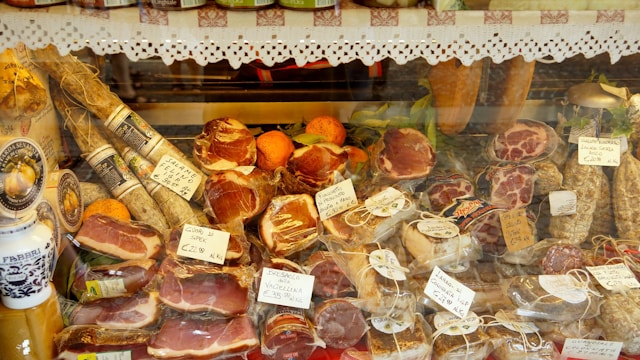The romantic notion persists: food across the Atlantic, particularly in Europe, simply tastes better, feels healthier. Tales abound of travellers returning leaner, extolling the virtues of croissants and pasta. But beneath the veneer of anecdotal evidence and cultural adoration lies a more complex reality, particularly when considering meat production. Is the perceived superiority of European fare, especially concerning meat quality, grounded in fact, or is it a blend of cultural habits and clever sourcing? It begs the question often asked in another context: where’s the beef in this argument?
Experts delving into this culinary comparison suggest the differences might be less stark than commonly believed. Harry Klee, a professor emeritus hailing from the University of Florida, points out that while high-quality meat is attainable in the United States, finding it consistently might be simpler in Europe. This hints not at an inherent deficit in North American livestock farming itself, but rather at variations in sourcing practices and market availability. The issue isn’t necessarily the potential quality, but how readily the average consumer can access the best products. Klee notes that European consumers often benefit from more transparent labelling regarding meat origins, fostering greater awareness and potentially influencing purchasing choices and perceptions of quality.
Food scientist Abbey Thiel reinforces the idea that globalization has levelled the playing field for many food products. Produce quality, for instance, might be largely comparable. Klee concurs regarding items like tomatoes, often grown under similar greenhouse conditions on both continents. Thiel highlights objective measures, noting the U.S. ranked third globally for Food Quality and Safety in the 2022 Global Food Security Index, just behind Canada and Denmark, suggesting robust overall standards.
However, cultural practices surrounding food consumption introduce significant variables. European tendencies towards more frequent, even daily, grocery shopping inherently favour fresher ingredients in marketplaces compared to the typical North American weekly stock-up. This frequent pursuit of freshness, according to Klee, directly impacts taste and potential health outcomes. Furthermore, dietary patterns differ; Europeans often consume smaller portions and incorporate more fruits and vegetables, sometimes starting meals with salads, practices linked to feelings of better health. Even dessert choices diverge, with lighter options like fruit or yogurt common in Europe versus the heavier sweets often preferred stateside.
Seasonality also plays a crucial role. European food culture often emphasizes eating produce when it’s naturally harvested, maximizing flavour and nutritional content. While North American markets offer year-round availability for many items, consuming them out of season might compromise taste and nutrient density, as Klee suggests. This adherence to natural cycles could contribute to the perception of superior European ingredients.
Despite these European advantages in freshness perception and perhaps meat sourcing transparency, obtaining high-quality food, including meat, in North America is entirely feasible. Klee advises consumers to become educated about seasonal availability and consider investing slightly more in fresh, premium ingredients. When fresh isn’t an option, frozen produce, often processed at peak ripeness, offers a nutrient-rich alternative. The perceived gap often boils down to consumer awareness, sourcing decisions, and navigating the complexities of modern food systems rather than an insurmountable difference in inherent U.S. meat standards or livestock farming potential. Ultimately, finding the best quality depends less on the continent and more on informed choices.
References:
The Truth About European Food: Experts Weigh in on Whether It’s Better Than U.S. Cuisine

